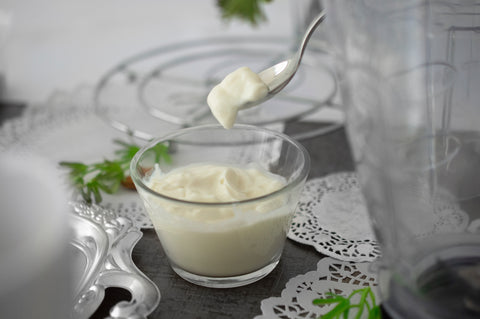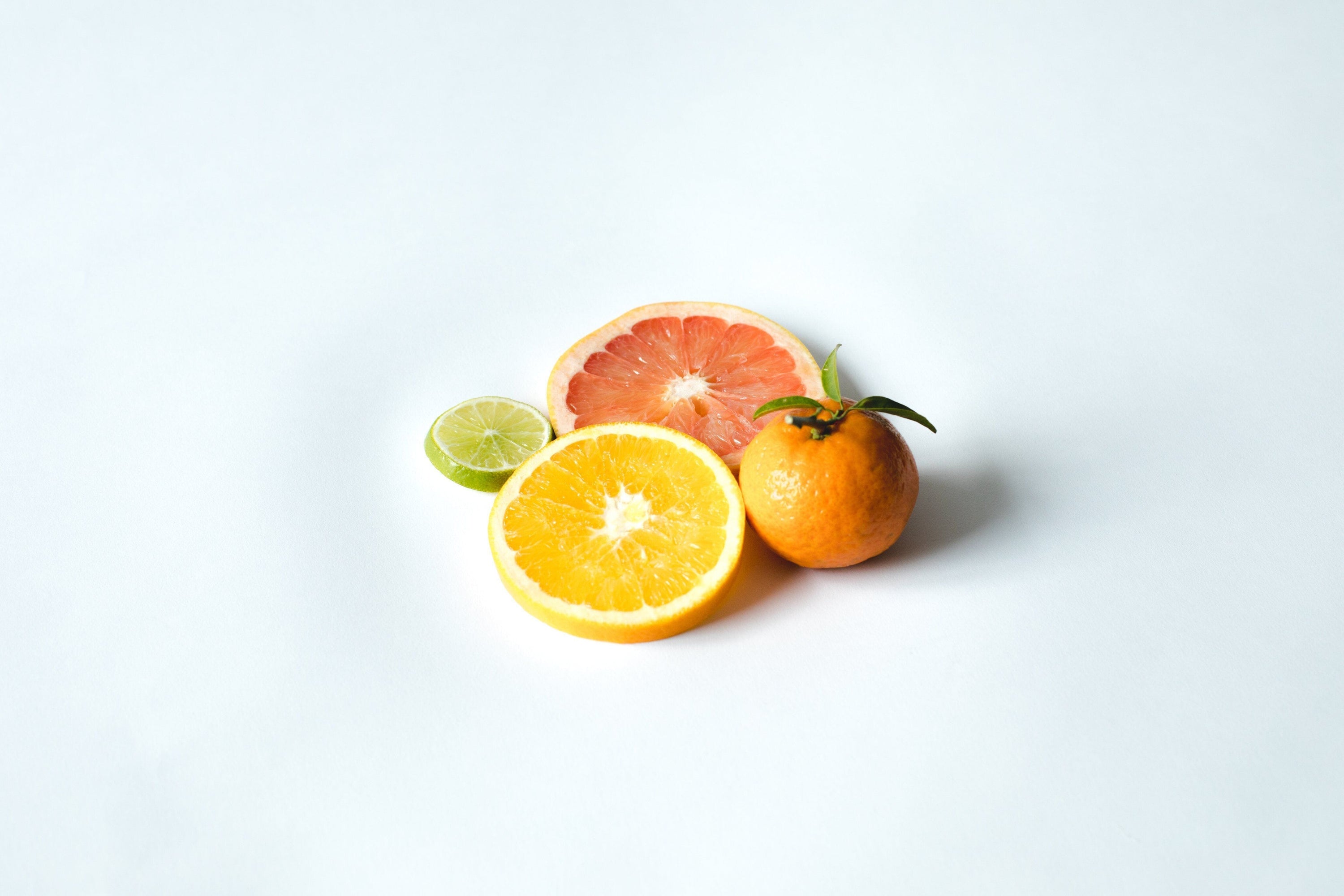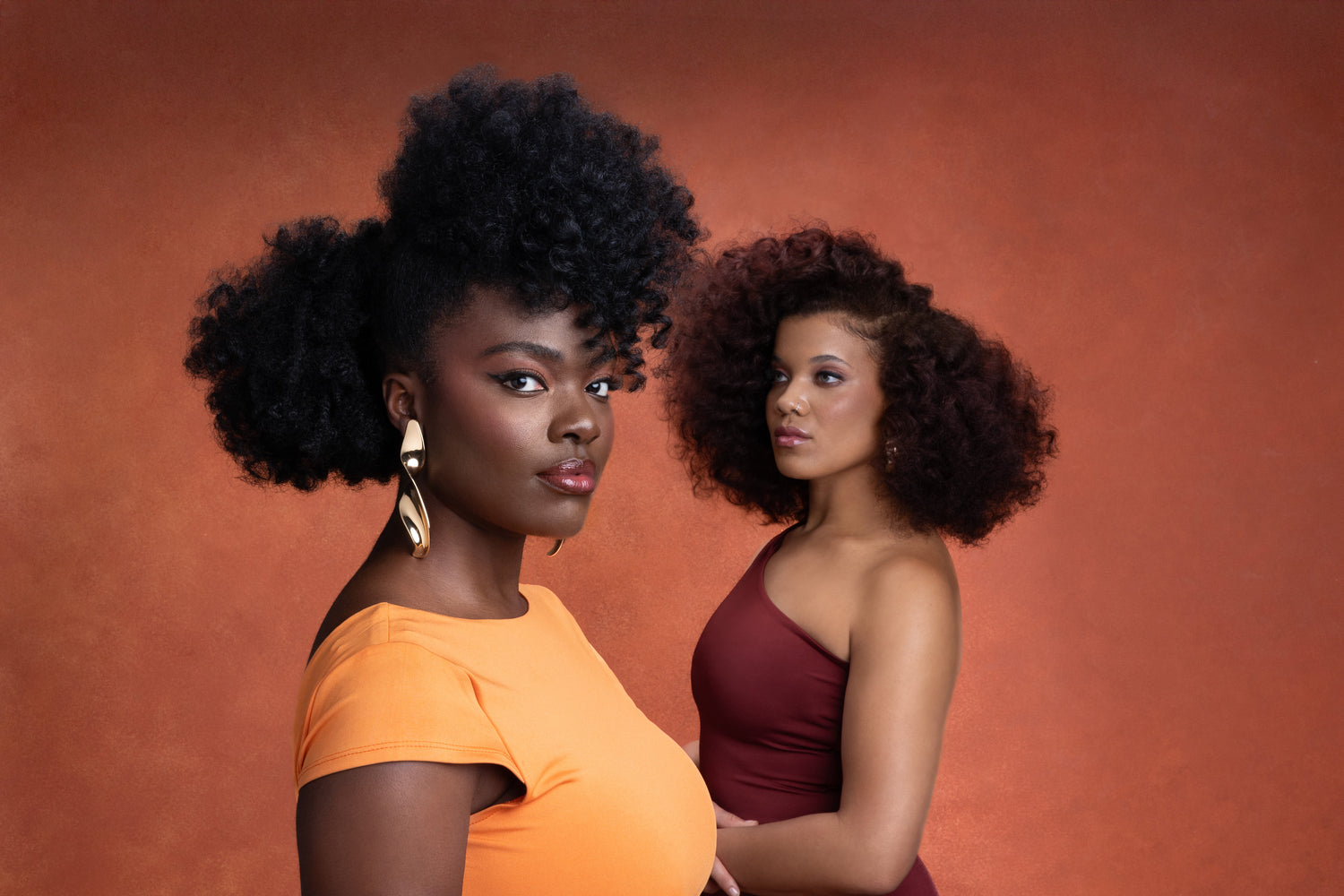As natural ingredients gained popularity in the natural hair community, many people wondered whether swapping over from “mainstream” or synthetic-based hair products to natural hair care was going to make a difference to their afro hair.
With ‘natural’ products gaining traction, we all began to hear well-meaning recommendations about simple, homemade recipes. These recipes promised to be safer than using store-bought hair products, were supposed to be more effective and were also going to save us money in the long run.
In this blog, we'll explain why we love natural ingredients but that some ingredients will do your hair more good if you ate them!
1. Apple Cider Vinegar to balance the pH of Your Afro Hair
The first time we heard about using apple cider vinegar we were a little shocked. The pH of apple cider vinegar is so low, how could it possibly balance the pH of afro hair?
As a vinegar, its pH is 2 - 3, just like Citric Acid. This is considerably lower than your skin’s protective system - called the acid mantle - which has a pH of 4.5 - 5.5 and is even lower than your hair’s pH of 3.67.
If your hair has ever been damaged through relaxing, straightening or over-using heat, you may have heard that apple cider vinegar will balance the pH of your skin and hair. Although this low pH will kill bacteria and microorganisms - just like it does when washing chicken with vinegar - it may not be necessary when it comes to the scalp.
Your scalp skin, similar to your body’s skin, is full of safe microorganisms that feed on your skin. Killing some of these ‘friendly’ bacteria may actually pose a risk to the natural microflora of your skin. As a consequence, this may lead to an overproduction of the microorganism as a fight response from your body or some natural processes that are dependent on the microorganisms cease to occur.
Killing microorganisms doesn’t equal washing your hair, especially if you are suffering from product buildup. However, many people think that if something kills all bacteria then it is doing the right thing. We say, yes you should want to be clean but not so clean that your body’s natural defence bacteria is powerless in the fight against harmful bacteria!
A healthier and more efficient way to achieve a pH balance is to use a mild shampoo - one that falls within your natural pH range of 4.5 - 5.5 - more frequently. This kind of shampoo is specifically and selectively designed to gently cleanse your scalp and its hair to promote a healthy environment for your scalp, clean your hair and remove product buildup.
Most of the products put on the market, no matter their target consumer (whether for dandruff, for children, or recommended by dermatologists) tend to have a pH higher than 5.5. This is mainly because the product itself is more stable at that pH range more so than it would be at a lower one and is also the way a shampoo/conditioner system traditionally works.
Get the edible benefits of Apple Cider Vinegar
To get the benefits hidden in Apple Cider Vinegar, like Acetic Acid, you should drink it diluted in water. Vinegar comes with anti-inflammatory, antimicrobial benefits and is said to lower blood pressure.
2. Cleansing with Lemon Juice

Lemon works in a similar way to Apple Cider Vinegar. It has a very low pH of 2 - 3 because of the high concentration of citric acid in it. This enables it to smooth down the scales of your cuticle and give a softer feel once you touch it.
However, we would not suggest you use it anywhere near your scalp. This will have a huge impact on the health of your scalp skin, as your scalp functions best at at 4.5 - 5.5 pH. It will disrupt the balance you are trying to achieve or already have by making it work more for no particular reason.
Nutritious benefits of lemon juice
By consuming it in its diluted form in your water or tea you can get all the healthy nutrients of the lemon. It contains citric acid and ascorbic acid which act as an antioxidant agents.
3. Using Baking Soda to Wash Your Afro Hair
Again, this recommendation centres around pH. Our skin’s acid mantle is around 4.5 - 5.5, and hair’s pH is 3.67. Baking soda, known chemically as sodium bicarbonate, when diluted in water has a pH of 9. That’s the pH of a mild bleaching agent and of soap!
There are much safer ways to wash and clean hair, instead of potentially burning and irritating the scalp with baking soda. The long-term use of products with such a high pH will cause sensitivity and irritation to your skin and hair. Your hair will respond by increasing its static electricity, and, because of the close contact between charged groups on the hair shaft, the hair strands will repulse each other and you will get frizzy hair. Therefore, combing and “managing” your hair will be more difficult.
Also, the higher the pH, the more water molecules can actually penetrate the lifted scales of the cuticle. That can backfire when moisturising your hair. When water is absorbed quickly, it temporarily breaks the hydrogen bonds that hold keratin together via hydrolysis. This process means that the wet hair wouldn’t be able to regain its initial form due to increased plasticity and reduced elasticity. The drawback of this is that too much water may escape for your hair, which can lead to microscopic cuticle damage and cuticle cracking. This in turn will leave you with brittle hair in the long run.
4. Egg Masks for Damage Resistance

Whilst damage is inevitable, how much you protect your hair from damage is the key to more “resistance”. Eggs won’t necessarily ‘save’ your hair.
Eggs are a superfoods but they aren’t a ‘super-hair-food’. Egg whites, specifically, are high in their water content (~ 90%), proteins (ovalbumin – 55%, conalbumin – 13%, ovamucoid – 10%, ovomucin – 2%, avidin - 0.05%) and mineral such as Phosphorous. The amino acids of the proteins may be charged and vary in their pH. Their functions vary from acting as a storage protein, finding and hiding away metallic contaminants, inhibiting bacterial growth and providing body to the egg white.
However, just because the amino acids of the protein benefits the egg itself, doesn’t mean it will benefit your hair. Keratin (the protein hair is made up of and that protects epithelial cells from damage or stress) is an entity in itself and it’s a much simpler protein than the ones found in the egg whites. The proteins in an egg white cannot help damaged keratin to recover by replacing it.
When we think of actual damage resistance, we think of UVA and UVB control, heat protection and moisturising agents. Egg whites have none because the deposited materials cannot moisturise. They may form a layer on top of the hair shaft. The “best” proteins for hair are hydrolysed proteins, which are basically made by changing the long protein strands into smaller chains or single amino acids.
Edible benefits of eggs
All the healthy nutrients that are packed in this simple ingredient may not have an effect on your hair if you apply it topically. What you could do instead is to feed your hair by eating the egg. This way the egg proteins can be broken down by your digestive system into amino acids along with the minerals. They will be absorbed and run through your blood which will reach your hair bulb - the generator of your hair. With these components you can “restructure” your afro and strengthen it from within.
5. Avocado Mask to Strengthen Your Curls
An avocado mask may sound like it is doing a lot because avocado is another superfood. It is packed with many vitamins that are essential to hair growth like the Vitamin B complex, a relatively high fatty acid content, vitamin C and many minerals.
Because of its lipid content, it can provide smoothening effects to your hair but its benefits are limited to that. Other than the one smoothing benefit, it doesn’t do much to (or for) your hair.
Smashing up one or two avocados in a bowl and putting them on your hair is an expensive mask and probably won't get your hair all the healthy nutrients that the avocado has.
Why You Should Eat Avocados
Eating avocados (½ is the suggested portion per day) is a better way that you can get all the super-nutrients and the avocado doesn’t go to waste! Its folate (Vitamin B9) is essential for your health as it is an enzyme for the DNA synthesis and amino acid metabolism.
Ascorbic Acid (Vitamin C) role is to act as an antioxidant which enables it to absorb the internal iron (the one you eat) which directly impacts your hair and helps synthesise collagen (the most abundant structural protein in your skin and body).
6. Yoghurt for Afro Growth

Yogurt contains high lactic acid and protein content. The lactic acid helps it have a low enough pH to be able to mildly cleanse your scalp but the mechanism behind is not effective enough.
Yogurt is claimed to be able to nourish the hair because of the protein content that we mentioned. The protein would better benefit you if you were to actually eat it. This is the same case as with the egg mask. Simply adding proteins will not recover the lost cells.
Incorporate Yogurt into Your Diet to Promote Healthy Hair Growth
Growth starts from within and your within starts from what you eat. The proteins and carbohydrates found in the yogurt are broken down by the digestive system into amino acids and monosaccharides which are transported to the whole body, including your hair bulb. Your hair bulb will use these amino acids as the building blocks to structure your hair strands by binding them with zinc and iron. It will also use the monosaccharides to give energy for the actual hair reproduction.
Read more articles related to caring for Afro hair:
1 Why do natural ingredients work wonders on afro hair?

